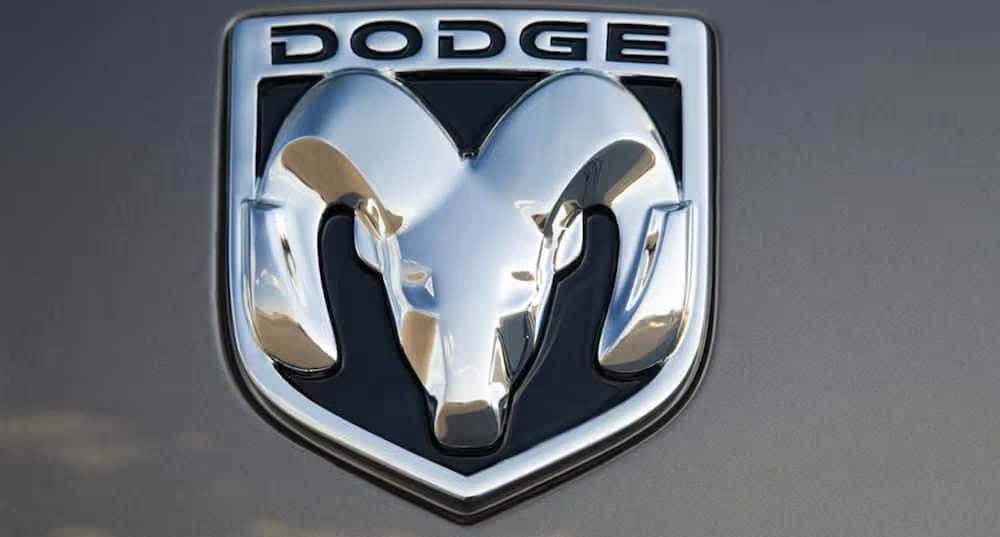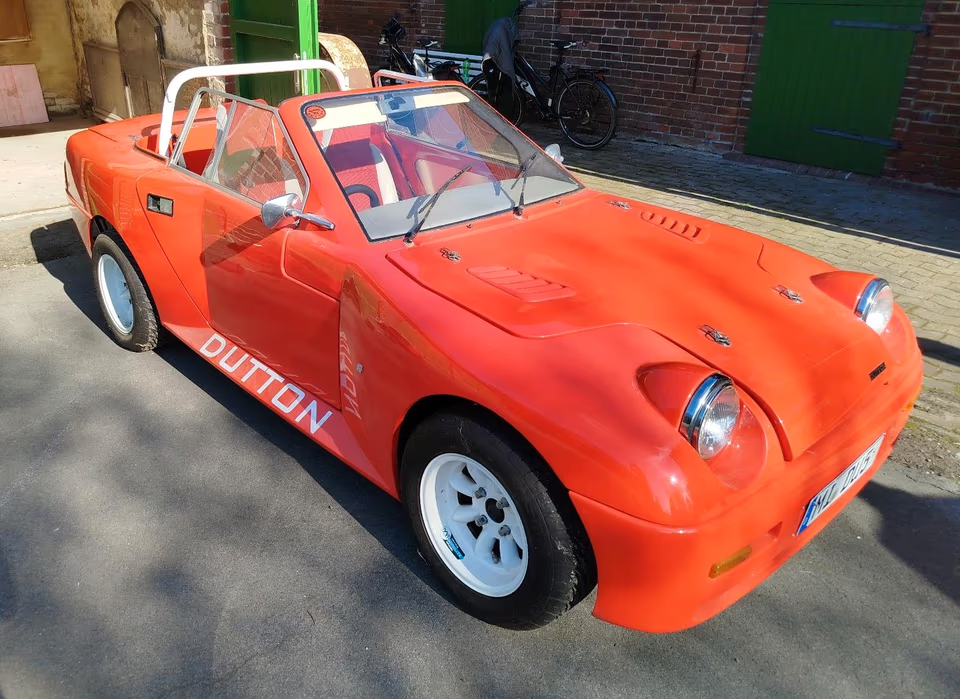The automotive world is a rich mosaic, shaped by countless car brands that have driven progress through innovation, style, and cultural influence. Among them, brands beginning with the letter “D” have carved out distinctive legacies in the history of transportation. From trailblazing luxury makers to groundbreaking innovators, these companies have left lasting impressions worldwide. This guide delves into the stories of prominent “D” car brands; Dodge, Daimler, Datsun, DeLorean, and Duesenberg; alongside others, exploring their origins, key achievements, and enduring impact.
SEE ALSO: Discover 16 Legendary Car Brands Starting With “C” (Updated June 2025)
Car Brands Starting With ‘D’
Dacia (Romania, 1966–Present)

Founded in 1966, Dacia is Romania’s leading car manufacturer, initially producing affordable vehicles under license from Renault. Acquired by Renault in 1999, Dacia has become synonymous with budget-friendly, reliable cars like the Duster and Sandero, gaining popularity across Europe for their value-driven approach.
Daewoo (South Korea, 1982–2011)

Daewoo Motors emerged as a South Korean automotive giant, producing models like the Lanos and Nubira. After financial struggles, it was acquired by General Motors in 2002 and rebranded as GM Korea, though the Daewoo name persists in some markets for commercial vehicles.
Daihatsu (Japan, 1907–Present)

One of Japan’s oldest carmakers, Daihatsu specializes in compact “kei” cars and off-road vehicles. A subsidiary of Toyota since 2016, Daihatsu is known for models like the Mira and Terios, focusing on efficiency and affordability, primarily in Asia.
Daimler: Pioneering the Automobile (Germany, 1886–Present)

Daimler holds a foundational place in automotive history, originating in 1886 when Gottlieb Daimler and Wilhelm Maybach created the first high-speed internal combustion engine, laying the groundwork for modern cars. Based in Germany, Daimler-Motoren-Gesellschaft (DMG) debuted the Mercedes in 1901, named after Emil Jellinek’s daughter. This brand became a hallmark of luxury and engineering excellence. In 1926, DMG merged with Benz & Cie to form Daimler-Benz, which evolved into today’s Mercedes-Benz Group AG. Though the Daimler name is less prominent now, its legacy endures through the iconic Mercedes-Benz brand.
Darracq (France, 1896–1930s)

Founded by Alexandre Darracq, this French brand produced early automobiles and influenced brands like Opel and Alfa Romeo. It faded as competition grew but remains a footnote in automotive history.
Datsun: Japan’s Budget-Friendly Trailblazer (Japan, 1931–1986, 2013–Present)

Datsun, a brand under Nissan, began in Japan in 1931, named after the founders’ initials (Den, Aoyama, Takeuchi) and “sun” for Japan. Starting with the Datsun Type 11 in 1932, it focused on affordable, reliable vehicles. The 1960s and 1970s saw Datsun rise globally with models like the 510 and the sporty 240Z. Nissan retired the Datsun name in 1983 but brought it back in 2013 for budget models in emerging markets. Datsun’s legacy lies in its role in elevating Japanese cars to global prominence.
Dauer

Dauer, a German engineering firm, is renowned for its high-performance sports cars, particularly the Dauer 962 Le Mans, a street-legal adaptation of the Porsche 962 race car.
David Brown (UK, 1947–1972)

David Brown, a British luxury automaker, is known for crafting premium vehicles like the Aston Martin DB series, embodying sophistication and top-tier performance.
De Dion-Bouton (France, 1883–1953)

One of the earliest carmakers, De Dion-Bouton pioneered steam and gasoline vehicles. Its innovations, like the rear axle design, were foundational, though it ceased car production after World War II.
De Tomaso

De Tomaso, an Italian brand, is celebrated for its high-performance sports cars, with the iconic Pantera showcasing its blend of speed and sleek design.
Delage (France, 1905–1953)

Delage was a prestigious French automaker celebrated for crafting luxury cars that combined performance with artful design. Active primarily in the early 20th century, Delage vehicles remain highly collectible for their timeless style and innovative mechanics.
Delahaye (France, 1894–1954)

Delahaye was another French marque famed for its elegant, hand-built automobiles. Their vehicles, often associated with art deco design, represented peak craftsmanship and luxury during the pre-World War II era.
Delaunay-Belleville

Known for producing some of the most luxurious vehicles of the early 20th century, Delaunay-Belleville cars were a symbol of status and elegance. This French brand served elite customers, including royalty, with meticulously built vehicles.
DeLorean: A Bold Vision (USA, 1975–1982)

Founded in 1975 by John DeLorean, the DeLorean Motor Company (DMC) sought to redefine the automotive industry with the DMC-12, a futuristic car featuring gull-wing doors and a stainless-steel body. Launched in 1981, it gained fame for its striking design but struggled with performance issues and high costs. DMC went bankrupt in 1982 after producing roughly 9,000 cars, compounded by John DeLorean’s legal troubles. The DMC-12 became a cultural icon through Back to the Future, and efforts to revive the brand continue, symbolizing bold ambition.
Dennis (UK, 1895–Present)

Dennis specializes in commercial vehicles like buses and trucks. Its fire engines and double-decker buses are iconic in the UK, with a focus on durability and reliability.
Denzel

Denzel, an Austrian manufacturer, produced agile, sporty cars in the mid-20th century, with the Denzel 1300 highlighting its focus on performance.
Derby (France, 1921–1936)

A lesser-known French brand, Derby produced cyclecars and small vehicles. Limited success and economic pressures led to its obscurity, though it reflects early 20th-century innovation.
DeSoto (USA, 1928–1961)

DeSoto, an American brand under Chrysler, operated from the 1920s to the 1960s, known for its stylish designs and technological advancements.
Detroit Electric (USA, 1907–1939, 2008–Present)

One of the earliest electric vehicle makers, Detroit Electric produced cars with impressive range for their time. Revived in 2008, it aims to reintroduce electric models, though progress is slow.
Devel Sixteen

Devel Sixteen, based in Dubai, is known for its audacious hypercar claiming 5,000 horsepower, pushing the boundaries of automotive performance.
Devin

Devin, an American brand, produced kit and sports cars in the mid-20th century, known for their lightweight design and racing prowess.
Devon (UK, 2013–Present)

Devon Motorworks attempted to produce the GTX, a modern supercar inspired by American muscle. Limited production and financial hurdles have kept it niche.
Diatto (Italy, 1905–1929)

Diatto built luxury and racing cars, collaborating with Bugatti. Economic challenges ended its run, but its contributions to Italian automotive design are notable.
Dinan

Dinan, an American tuning company, enhances BMW vehicles, offering performance upgrades for enthusiasts seeking superior driving dynamics.
Dino (Italy, 1967–1976)

A Ferrari sub-brand, Dino produced affordable sports cars like the 246 GT, named after Enzo Ferrari’s son. Integrated into Ferrari’s lineup, its legacy lives in Ferrari’s mid-engine designs.
DKW (Germany, 1916–1966)

DKW, part of Auto Union, pioneered two-stroke engines and front-wheel-drive cars. Merged into Audi, its innovations shaped modern German automotive engineering.
Dodge: American Power and Durability (USA, 1914–Present)

Established in 1900 by John and Horace Dodge in Detroit, Dodge initially supplied components to early automakers like Ford. In 1914, they launched the durable Model 30, featuring an all-steel body. Acquired by Chrysler in 1928, Dodge became a powerhouse, especially with muscle cars like the Charger and Challenger. Now under Stellantis, Dodge continues to deliver bold, high-performance vehicles and SUVs.
Dongfeng (China, 1969–Present)

Dongfeng Motor Corporation is one of China’s largest automakers, producing a range of vehicles from sedans to heavy-duty trucks. It partners with global brands like Nissan and Peugeot, playing a key role in China’s automotive growth.
Dome

Dome, a Japanese racing car manufacturer, is known for its aerodynamic sports prototypes, excelling in motorsport performance.
Donkervoort (Netherlands, 1978–Present)

Donkervoort produces lightweight, hand-built sports cars inspired by Lotus. Models like the D8 GTO emphasize performance and driver engagement, appealing to enthusiasts.
Doran

Doran, an American motorsport brand, specializes in high-performance racing cars, contributing to various racing series.
Dorris (USA, 1906–1926)

Dorris Motor Car Company built reliable early cars in St. Louis. Despite engineering prowess, it couldn’t compete with mass producers like Ford, fading into obscurity.
Drako (USA, 2013–Present)

Drako Motors focuses on high-performance electric vehicles, like the GTE supercar. Based in Silicon Valley, it aims to blend cutting-edge technology with thrilling performance.
DP

“DP” often refers to racing-specific terms like Design Prototype or Daytona Prototype, used for specialized high-performance vehicles.
DSFK (China, 2003–Present)

Dongfeng Sokon (DFSK) produces affordable SUVs, vans, and commercial vehicles, targeting markets in Asia and beyond. Its focus on utility has driven steady growth.
Drekar

Drekar, a Canadian brand inspired by Viking longships, produces high-performance electric vehicles like the Falcon, blending sustainability and power.
DS Automobiles (France, 2009–Present)

A premium brand under Stellantis, DS spun off from Citroën to focus on luxury and innovation. Models like the DS 7 Crossback blend French design with advanced technology, targeting Europe’s upscale market.
Dual-Ghia

Dual-Ghia, an American luxury brand, collaborated with Italian coachbuilder Ghia to create exclusive, hand-built cars favored by celebrities.
Duesenberg: The Epitome of Opulence (USA, 1913–1937)

Founded in 1913 by Fred and August Duesenberg, this American brand epitomized luxury. After E.L. Cord’s 1926 acquisition, the Duesenberg Model J debuted in 1928, a bespoke masterpiece for the elite. Known as the “Duesy,” it became synonymous with excellence. The Great Depression ended production by 1937, but Duesenberg’s legacy of opulence endures among collectors.
DuPont

DuPont Motors, an American luxury brand, crafted high-end vehicles like the Model G in the early 20th century, symbolizing craftsmanship and exclusivity.
Dutton (UK, 1970–1989)

Dutton Cars specialized in kit cars, offering affordable sports car alternatives. Its niche market couldn’t sustain long-term production, but enthusiasts still cherish its models.
Dynacorn (USA, 1984–Present)

While primarily a restoration parts supplier, Dynacorn has ventured into recreating classic car bodies, like the Ford Mustang. Its work supports the preservation of automotive history.
Conclusion
The exploration of 42 car brands starting with the letter “D” reveals a rich tapestry of automotive history, innovation, and diversity. From iconic legacy manufacturers like Dodge and Daihatsu, which have left an indelible mark on the industry with their robust designs and reliable vehicles, to lesser-known yet fascinating brands such as DeSoto and Datsun, each name carries a unique story of engineering prowess and market evolution. This list underscores the global reach of the automotive world, spanning countries like the United States, Japan, Germany, and beyond, and highlights how these brands have adapted to changing consumer demands and technological advancements.
Some brands, like Daimler and Denza, represent the cutting edge of electric and luxury vehicle development, reflecting the industry’s shift toward sustainability and premium experiences. Others, such as DeLorean and Duesenberg, evoke nostalgia with their legendary status and innovative designs, even if their production has ceased or been limited. The variety within this list; from mass-market producers to niche luxury or specialty manufacturers; demonstrates the breadth of the automotive landscape and its ability to cater to diverse tastes and needs.
As of June 2025, the automotive industry continues to evolve, and the brands starting with “D” remain a testament to resilience and creativity. Whether they are shaping the future with electric innovations or preserving the heritage of classic car culture, these 42 brands collectively contribute to the ongoing narrative of mobility. For enthusiasts, collectors, or simply those curious about automotive history, this list serves as both a celebration of past achievements and an exciting glimpse into the potential of what lies ahead on the road.
